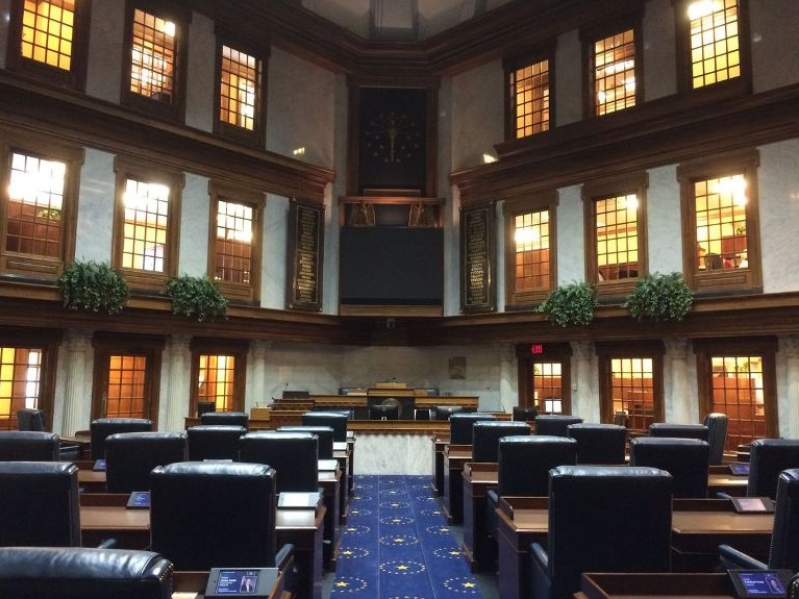
Indiana senators abandoned a legislative proposal that would have mandated time for public prayer during school assemblies, sports competitions and other events, due to questions about how such a policy would affect non-religious students.
House Bill 1024 would protect students who wish to pray or show their religious expression before, during and after school.
Under the provision, school districts would have been required to create a "limited public forum" for prayer at school events, and students who wanted to be excused from religious speech would be given "reasonable accommodations." The legislation also encouraged high schools to teach classes on world religions, and affirmed the right of students to wear religious clothing or jewelry, reports Fox News.
Members of the Senate Education and Career Development Committee voted unanimously on Wednesday to strip the provision from a bill that already passed the House by an 83-12 vote.
Rep. John Bartlett, an Indianapolis Democrat who proposed the initial measure, said he hoped that exposing students to religion could lead to better behavior and a more prayerful life. "House Bill 1024 is not a mandate for prayer," he said.
"It really puts everything into perspective. A lot of schools are afraid to have prayer in schools or allow their students to pray because they are afraid of a lawsuit."
But the proposal sparked hours of discussion at a meeting two weeks ago, particularly concerns about how students from different faiths, or who aren't religious, would be treated.
Some opponents said at the bill's first hearing in the Senate committee they have a "hard time picturing" that the religious expression of minority religious groups would be treated the same as a Christian one. "What if a group of Muslim students wanted to pray right in that ceremony? How would that have been accepted -- or would it have caused an outcry?" posed Democratic Sen. Mark Stoops, who voted against the bill.
"In fairness, any school that receives public funding should fall under this bill," said Stoops, according to the Evansville Courier & Press. "And again I think that if it's good for public schools and charter schools, it would also be necessary for private schools that received vouchers."
Sen. Luke Kenley, a Noblesville, Ind., Republican, joined his colleagues in voting to remove the requirement, saying that specific provision in the original bill "pushes just a little too hard."
An amended version of Bartlett's bill now will be presented to the full Senate for consideration. The panel rejected amendments that would have mandated a comparative religion class and applied the bill's requirements to private schools.
Fox reports at least three states -- Georgia, Mississippi and Missouri -- have enacted laws with language calling for a "public forum" for voluntary student religious expression at school events. Opponents questioned the necessity of such a proposal, indicating schools already acknowledge freedom of religion.







